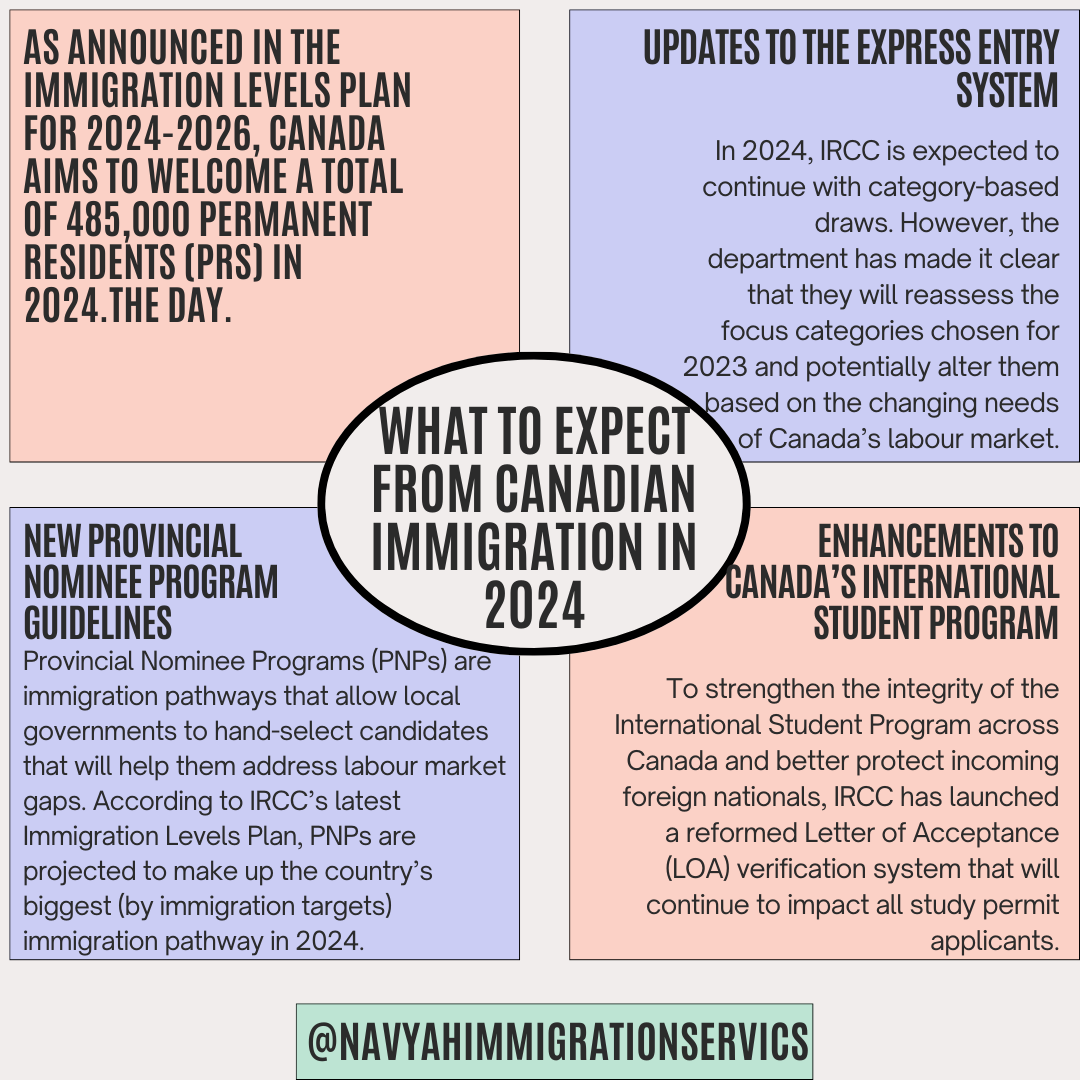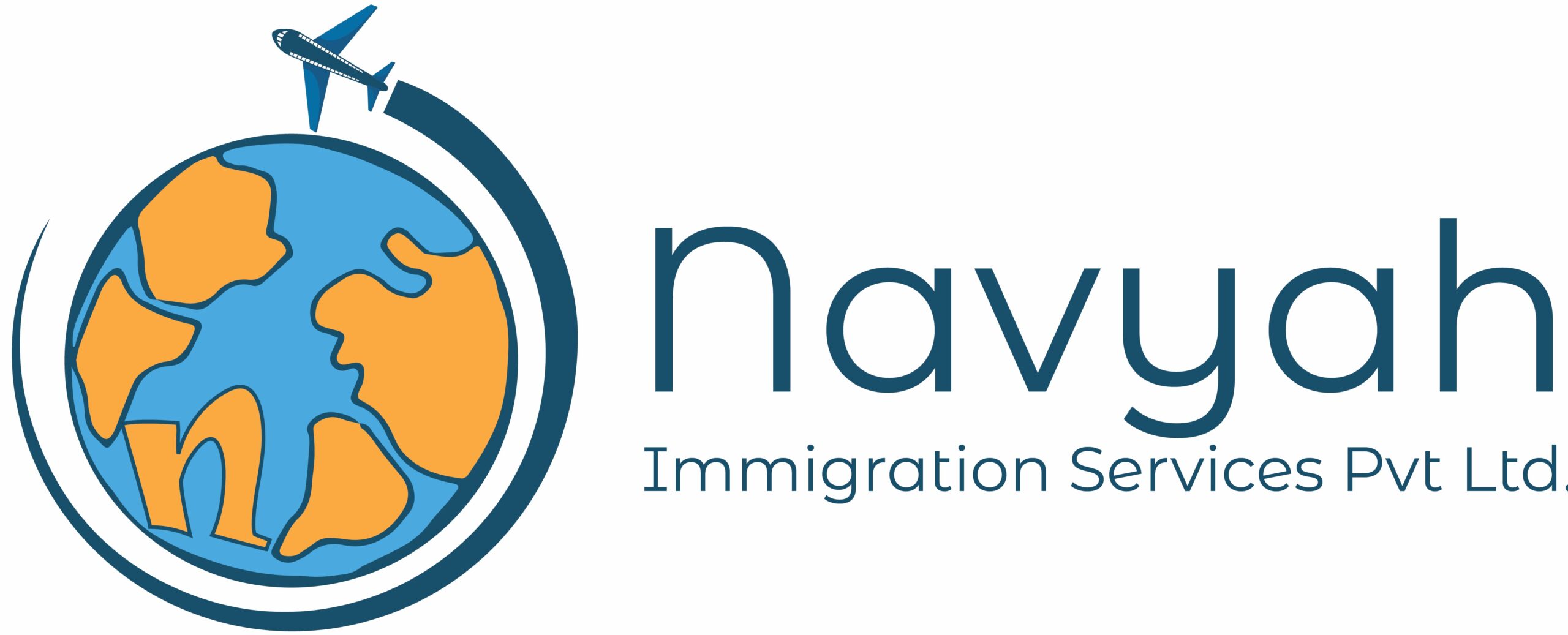What to expect from Canadian immigration in 2024
Canadian Immigration in 2024, Immigration, Refugees and Citizenship Canada (IRCC) is set to introduce significant changes to its immigration system, impacting all newcomers to Canada. As part of the Immigration Levels Plan for 2024-2026, Canada plans to welcome 485,000 permanent residents (PRs).
Updates to the Express Entry System:
In 2023, the IRCC began conducting category-based Express Entry draws, focusing on candidates with French language skills and those with work experience in key industries like Healthcare, STEM, Trades, Transport, and Agri-Food/Agriculture. This focus is expected to evolve in 2024 to address changing labour market needs in Canada.
New Provincial Nominee Program (PNP) Guidelines:
PNPs will form a significant part of Canadian immigration in 2024. New guiding principles have been introduced for these programs, along with multi-year plans starting from 2024. This will allow better planning and clarity for prospective immigrants looking to move to specific provinces or territories.
Expansion of the Parents and Grandparents Program (PGP):
After welcoming 28,500 immigrants through the PGP in 2023, the target for Canadian Immigration in 2024 is set at 32,000. This increase aligns with efforts to improve application processing and management.
Enhancements to the International Student Program:
A reformed Letter of Acceptance (LOA) verification system has been implemented, requiring Designated Learning Institutions (DLIs) to confirm LOAs directly with IRCC. This is aimed at protecting students from fraud and ensuring genuine LOAs for study permits. Additionally, a review of the Post-Graduation Work Permit (PGWP) program is underway, aiming to align it more closely with labour market needs and regional immigration goals.

Increased Use of AI and Technology:
IRCC is enhancing the use of technology and AI to streamline the immigration process. This includes improving service standards, combating fraud, and making applications more user-friendly through digital and virtual technologies. These efforts are part of Canada’s Digital Platform Modernization initiative.
New IRCC Advisory Board:
A new advisory body, including individuals with personal immigration experience, will be established to focus on immigration policy and service delivery. This aims to foster a human-centric approach in policy and program development.
Introduction of the Chief International Talent Officer (CITO):
A new role, the CITO, will be introduced to align Canada’s immigration system with its national labour market and sectoral strategies. This role is expected to significantly impact Canada’s annual immigration strategy.
These developments reflect Canada’s commitment to evolving its immigration policies and systems to better meet the needs of newcomers and the country’s labour market in Canadian Immigration in 2024 and beyond.
